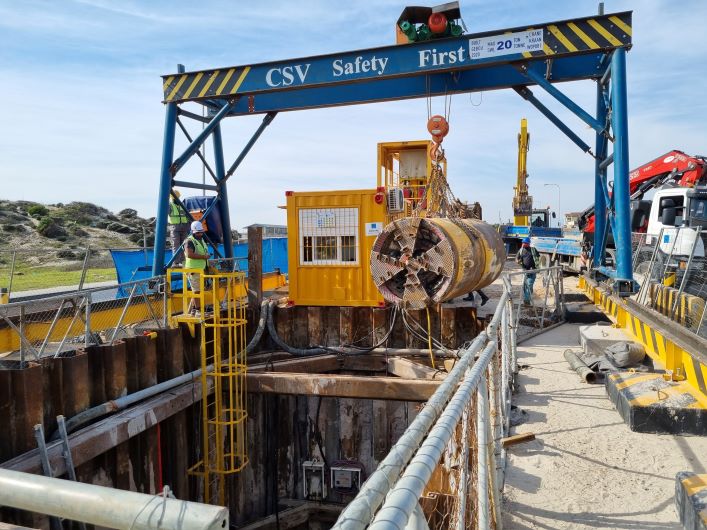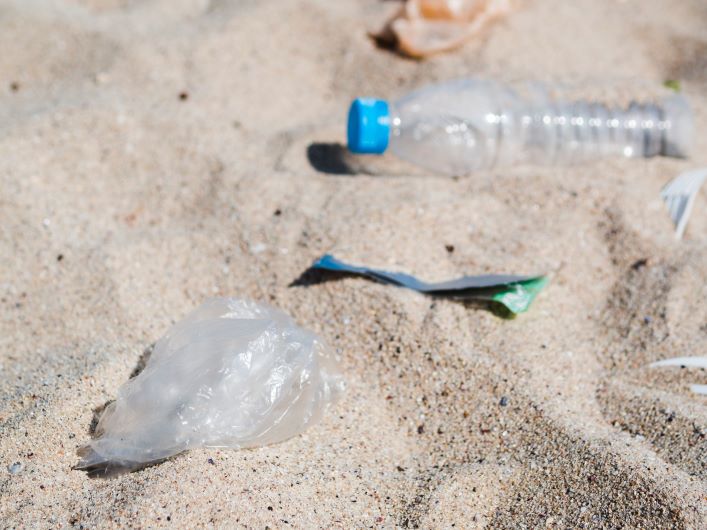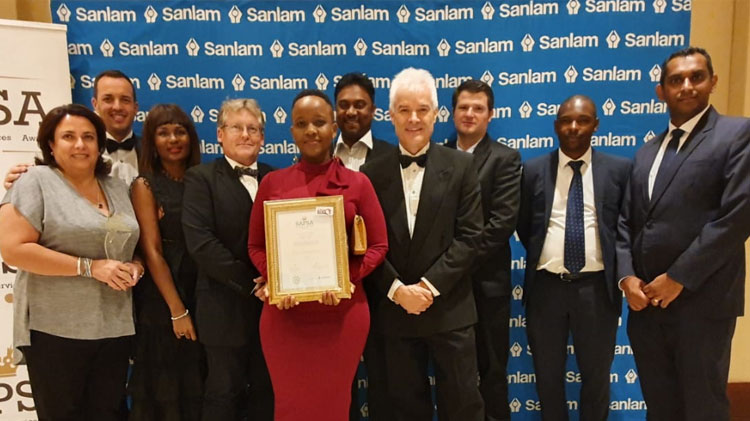
WSP’s project, which entails the planning, design and construction monitoring services for the Farm 694 development is set to bring significant benefits to Mitchell’s Plain communities. The project is intended to support the Western Cape Government Department of Infrastructure’s plan to develop several housing opportunities for the Kosovo Informal Settlement in the surrounding area. It will also support several other planned developments, as well as the densification of the Mitchell’s Plain area.
The Farm 694 project is the first phase of the ambitious upgrade and will enable de-densification of the larger Kosovo Informal Settlement.
Owing to the project’s proximity to existing services and roads, WSP decided to utilise the contractor’s (Power Smart JV) alternative tender offer. The alternative tender proposed micro-tunnelling by the specialist sub-contractor CSV Construction (Pty) Ltd, as opposed to open-trench excavation to minimise disruptions to the project and surrounding community.
The project is significant for two reasons. Firstly, it has been minimally disruptive to local communities, due to the implementation of micro-tunnelling. While most projects of this class would have required conventional, open, and deep excavation, micro-tunnelling enables limited excavation along the pipeline route instead.
This is important, explains Du Toit Carstens, Technical Director: WSP in Africa Civils, as conventional excavation (up to 8 metres deep) would have posed major safety risks for both construction personnel and the public.
“The project is located within an existing developed area and the full extent of the pipeline is situated within an existing 4 metre servitude and existing class 3 arterial road. Conventional construction methods would have substantially impacted the surrounding community. Apart from major traffic disruptions, several open spaces, including parks and schools, would have had to be closed for the duration of the construction period for safety reasons,” Carstens elaborates.
Another reason why the project is notable, is because it has the distinction of being the longest length of pipeline and biggest diameter pipeline to be constructed within South Africa using the micro-tunnelling method.
WSP was appointed to this project by the Western Cape Government’s former Department of Human Settlements in September 2018 as a joint venture (JV), whereby WSP was appointed for the planning, detailed design, and construction monitoring services; whilst MPAMOT was appointed for construction monitoring and the contract administration services for the bulk sewer and water services upgrade.
Construction commenced in August 2019 and the project was completed in March 2023, with the micro-tunnelling completed in March 2022. Project delays were however experienced due to the COVID 19 pandemic.
The full scope of the project includes the installation of a 500-metre water main, including all associated pipe fittings and chambers along New Eisleben Road in Mitchell’s Plain; installation of 1250 metres of 1200 mm diameter sewer pipeline between Merrydale Road and Park Avenue, and the installation of 1150 metres of 1350 mm diameter sewer pipeline from Park Avenue along Spine Road to the Mitchell’s Plain Wastewater Treatment Works.
Furthermore, the project also entails the construction of all associated structural manhole chambers including installation of a new collection chamber at the Mitchell’s Plain Wastewater Treatment Works. In addition, the installation of a new Sand Trap structure along the sewer pipeline has been constructed for the removal of grit and debris.
A project of this scope invariably has its obstacles, and this one is no exception
“One of the challenges was the continuous changes that needed to be made to the design during the construction phase, in order to accommodate unknown existing services via either temporary relocating services, the permanent relocation of services or the reconfiguration of existing services,” explains Darren Osborne, Civil Engineer (Civil & Municipal Infrastructure) at WSP in Africa.
Another significant challenge was not knowing the total extent and accurate location of a major existing stormwater pipeline which clashed with the new bulk sewer pipeline.
“We managed to address these challenges by constructing temporary stormwater infrastructure including a siphon structure and sand trap during micro-tunnelling and thereafter, micro-tunnelling a new stormwater pipeline section over the new bulk sewer pipeline after installation,” adds Arnaud Malan, Civil Engineer specialising in Water & Wastewater, WSP in Africa.
Despite the various challenges faced on this project, the professional team and appointed contractor remained committed to ensuring the success and completion of the project, which substantially benefits the surrounding communities. Working in the team’s favour, is the fact that, if required to, the micro-tunnelling machine can be run 24-hours a day, and merely requires a switching of operators. While this has been done only a few times, the machine does have the capacity to do so, which would enable the contractor to catch up any time lost if the need arises.
This gave comfort to residents in the area, as this project highlights the vital role that water and functioning infrastructure play in the lives of communities.
Facts and figures
More news
- MVULE GARDENS, AFRICA’S LARGEST 3D-PRINTED AFFORDABLE HOUSING PROJECT
- PART 3: HARNESSING THE POTENTIAL OF HIGH SULPHUR FLY ASH IN CONCRETE PRODUCTION
- PART 2: HARNESSING THE POTENTIAL OF HIGH SULPHUR FLY ASH IN CONCRETE PRODUCTION
- PART 1: HARNESSING THE POTENTIAL OF HIGH SULPHUR FLY ASH IN CONCRETE PRODUCTION
- PART 2: DESIGN AND CONSTRUCTION OF SLAB-ON-GROUND: APPLYING ACI 318





